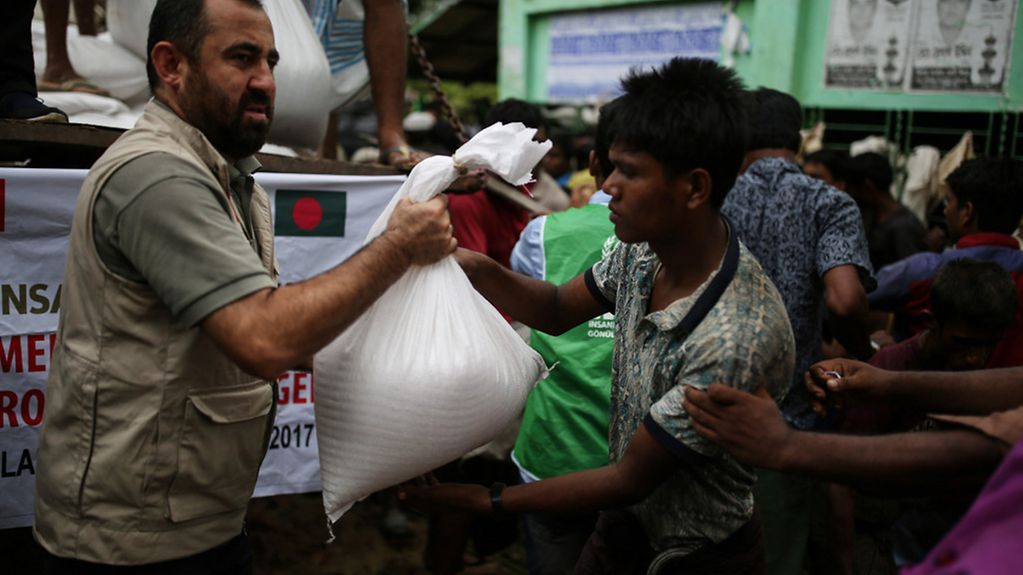Rohingya minority
In view of the disastrous situation in Myanmar and Bangladesh, the German government is supporting the region with relief measures. It is also demanding that humanitarian organisations be granted access to the people.
2 min reading time

Precedence must be given to ensuring that humanitarian supplies get to the people. Germany is helping to fund relief measures.
Photo: picture alliance/Anadolu Agency/Onur Coban
Federal government spokesperson Steffen Seibert pointed out that every effort must be made to prevent the situation deteriorating any further.
The current focus, stressed government spokesperson Steffen Seibert in Berlin, must be "to prevent any further deterioration in the situation, which is desperate on both sides of the border". Germany is involved in a variety of measures to finance relief measures.
Aid for refugees increased
For the state of Rakhine in the west of the country, one million euros has been earmarked for aid projects this year, Steffen Seibert reported. The German side is providing 11.2 million euros for measures in the fields of food security, essential medical care and employment promotion for internally displaced persons, as well as measures to assist the host communities in the region.
Via the central United Nations emergency fund, Germany is also contributing 60 million euros to humanitarian aid for refugees in Bangladesh. And the German government is supporting the EU’s relief efforts. "The EU is providing another 3 million euros for humanitarian aid for Rohingyas in both countries. In May a sum of 12 million euros was already pledged," said Steffen Seibert.
Ensuring access for aid organisations
Speaking in Berlin, Federal Foreign Office spokesperson Martin Schäfer stressed that the international community still does not have adequate access to Rakhine and the northern province of Myanmar. Nevertheless, he said, the international community must respond to the wholly unacceptable situation on the ground.
Getting humanitarian supplies to the people in Rakhine has priority. Martin Schäfer urgently called on the government of Myanmar to give all humanitarian organisations and international observers access to the region.
"It must be our goal to ensure that the people who have been forced to cross the border into Bangladesh and the internally displaced people in Rakhine are able to return to their own villages," he continued. The German government will be discussing this with its partners at the United Nations General Assembly in New York.
Myanmar’s government must act
Last week federal government spokesperson Steffen Seibert expressed concern over the dramatic situation faced by the refugees, and called on the parties to the conflict to find a peaceful solution. "We call on the government of Myanmar to accept its responsibility for all ethnic groups in the country. And we expect this in particular from the Nobel Peace Prize laureate and State Counsellor Aung San Suu Kyi."
The conflict between Rohingya rebels and government forces in Myanmar’s Rakhine state, which had been smouldering for some time, flared up again at the end of August. Fighting has since cost hundreds of lives. According to the United Nations, more than 400,000 Rohingyas have since fled to Bangladesh.